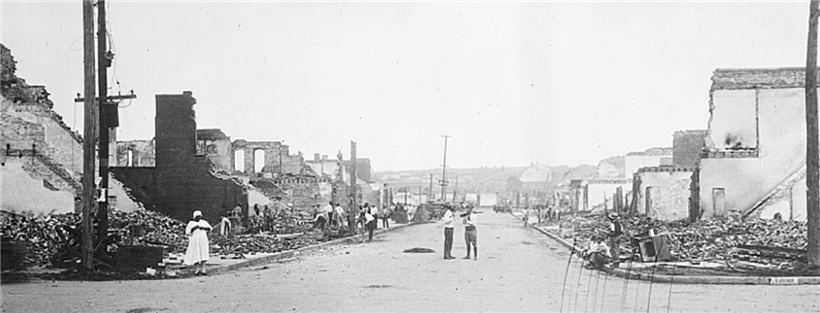AHR Unbound: June 2021 Issue

Due to production delays caused by the COVID-19 crisis, the American Historical Review’s June 2021 issue has been delayed both in-print and online. We have made the content of the June issue available on The AHR Unbound. Under normal circumstances, this would serve as a space for us to promote supplementary AHR material—everything from advance articles to additional illustrations, as well as thematic clusters of past and forthcoming content. In this case, we use the platform to disseminate the June articles and other featured content as advance articles.
AHA Members: To access the full text of articles, start at historians.org/myaha. Login with your email address and password. On the MY AHA page, scroll down in the white part of the page until you see the section AHA Publications on the left side. Click the link under that for American Historical Review at Oxford University Press. Next, click Continue to American Historical Review. On the Oxford site at https://academic.oup.com, you'll see AHA Member Access at the top right. As long as you see those words you're logged in and can access all versions of the AHR articles.
Articles
“‘Toilet Paper Panic’: Uncertainty and Insecurity in Early 1970s Japan,” by Eiko Maruko Siniawer
“The Unexceptional State: Rethinking the State in the Nineteenth Century (France, United States),” by Nicolas Barreyre and Claire Lemercier
“Europe’s Forgotten Unfinished Revolution: Peasant Power, Social Mobilization, and Communism in the Southern Italian Countryside, 1943-45,” by Rosario Forlenza
“Grassroots Glasnost: Experimental Art, Participation, and Civic Life in 1980s East Berlin,” by Briana J. Smith
“The Empire Strikes Back from Within: Colonial Liberation and the Korean Minority Question at the Birth of Postwar Japan, 1945-47,” by Deokhyo Choi
“‘A Genius without Direction’: The Abortive Exile of Dugmore Boetie and the Fate of Southern African Refugees in a Decolonizing Africa,” by Benjamin N. Lawrance and Vusumuzi R. Kumalo
“Walking While Indian, Walking While Black: Policing in a Colonial City,” by Sylvia Sellers-García
History Unclassified
“Community-Engaged History: A Reflection on the 100th Anniversary of the 1921 Tulsa Race Massacre,” by Karlos K. Hill
“An Illumination of a Floating World,” by William Gallois
“Darkness at Noon: On History, Narrative, and Domestic Violence,” by Joy Neumeyer
“On Silence and History,” by Lilia Topouzova
AHR Reappraisal
“‘The Vanished Power of the Usual Reign’: Jackson Lears, No Place of Grace, and the Struggle for Hegemony in History,” by Andrew Seal
From the Editor
“From the Editor’s Desk: Persilschein,” by Alex Lichtenstein
Featured Reviews
“Giuliana Chamedes. A Twentieth-Century Crusade: The Vatican's Battle to Remake Christian Europe.” By Michael E. O'Sullivan
“Marixa Lasso. Erased: The Untold Story of the Panama Canal.” By Catherine C. LeGrand
“Andrew A. Robichaud. Animal City: The Domestication of America.” By Jessica Wang
“Emma Kuby. Political Survivors: The Resistance, the Cold War, and the Fight against Concentration Camps after 1945.” By Rebecca Clifford
“Kirsten L. Ziomek. Lost Histories: Recovering the Lives of Japan’s Colonial Peoples.” By Alice Y. Tseng
“Sarah Milov. The Cigarette: A Political History.” By Barbara Hahn
“Eugene McCarraher. The Enchantments of Mammon: How Capitalism Became the Religion of Modernity.” By Alexia M. Yates
“Colin Koopman. How We Became Our Data: A Genealogy of the Informational Person.” By Hallam Stevens
“David Sorkin. Jewish Emancipation: A History across Five Centuries.” By Marsha Rozenblit
“Eren Tasar. Soviet and Muslim: The Institutionalization of Islam in Central Asia.” By Jeff Eden
AHR in the News
“Confronting the Myth of Objectivity: Historian Karlos Hill has found his ‘power’ teaching the 1921 Tulsa race massacre,” by David M. Perry
AHR Interview
For more episodes, check out AHR Interview on LibSyn.
.png)